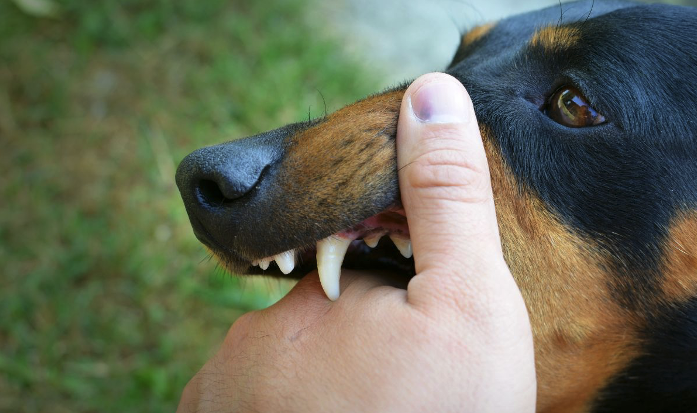
Surviving a dog bite is a life-altering experience that often leaves more than just physical scars. For many victims, the psychological toll can be just as severe—if not more so—than the physical injuries. Fear, anxiety, and even post-traumatic stress disorder (PTSD) are common struggles that can linger long after the wounds have healed.
Unfortunately, such incidents are not uncommon in cities like San Antonio, where dog ownership is widespread. According to the San Antonio Report, the city's Animal Care Services receives 3,000 reports of dog bites yearly, with most occurring in low-income areas.
But what is the real impact of surviving a dog bite on an individual's mental health?
Although the expertise of a San Antonio dog bite injury attorney is essential for such incidents, awareness of the effects also helps. This article talks about the psychological effects of such incidents and offers insights on how to cope with them.
The immediate aftermath of a dog bite can be highly traumatic. Victims often experience intense fear, shock, and anger in response to the sudden attack. Additionally, the physical pain from the bite itself can trigger feelings of helplessness and vulnerability.
Moreover, being bitten by a dog can shatter an individual's sense of safety and security. This is especially true for children, who may struggle to comprehend why something they thought was safe—a friendly pet—suddenly turned aggressive and harmed them.
Such feelings are completely normal and understandable. However, if left unaddressed, they can develop into more severe and long-lasting psychological consequences.
For some individuals, the emotional impact of surviving a dog bite may not fully manifest until weeks or even months after the incident. In many cases, these effects go beyond mere fear and anxiety and can result in lasting mental health issues such as:
For many survivors, the psychological impact of a dog bite includes symptoms consistent with post-traumatic stress disorder (PTSD). Flashbacks of the attack, recurring nightmares, and intrusive thoughts are common among individuals grappling with this condition. The mere sight or sound of a dog can act as a trigger, causing overwhelming panic and emotional distress.
PTSD can also manifest through avoidance behaviors, where the victim deliberately steers clear of dogs or areas where the attack occurred. While this may feel like a protective measure, it often limits the individual’s ability to lead a normal life, reinforcing feelings of isolation and fear. Seeking professional help is crucial in managing and overcoming PTSD.
Survivors may also experience persistent feelings of sadness, hopelessness, and worthlessness following a dog bite. Fear and anxiety can manifest in various forms, such as generalized anxiety disorder or specific phobias related to dogs.
Depression and anxiety can significantly impact an individual's daily life, making it difficult to engage in activities they once enjoyed or maintain relationships with loved ones. These conditions may require therapy or medication to manage effectively.
The psychological impact of surviving a dog bite can extend beyond the victim’s mental health; it can also affect their social life. The fear of being attacked again or being judged for their scars may lead survivors to isolate themselves from friends and family. This can result in feelings of loneliness, shame, and guilt.
Moreover, physical scarring from a dog bite can also negatively impact self-esteem and body image. In extreme cases, this may even lead to body dysmorphic disorder (BDD), where an individual becomes overly preoccupied with perceived flaws or defects in their appearance.
The psychological effects on children who have survived a dog bite can be particularly severe. In addition to the aforementioned symptoms, they may also experience developmental regression, where they exhibit behavior more typical of younger children.
Children may also struggle with feelings of guilt and self-blame, wondering if they provoked the attack or if they could have done something differently to prevent it. It is vital for parents and caregivers to seek professional help for their child if any concerning behavior or emotional distress persists.
The emotional toll of surviving a dog bite should not be taken lightly. Seeking support and professional help is crucial for managing these issues effectively. Here are some ways individuals can cope with the psychological effects of such incidents:
Seek therapy: Talking to a mental health professional can help victims process their emotions and develop coping strategies.
Join support groups: Connecting with other survivors who have gone through similar experiences can offer immense emotional support and understanding.
Practice self-care: Engaging in activities that promote relaxation and well-being, such as exercise, meditation, or spending time in nature, can help reduce stress and anxiety.
Consider medication: In cases of severe depression or anxiety, medication may be necessary to manage symptoms effectively.
Surviving a dog bite can have far-reaching consequences on an individual's mental health. The fear, anxiety, and trauma associated with these incidents can lead to long-term issues such as PTSD, depression, and social isolation. Seeking professional help and support is crucial in coping with the psychological effects of a dog bite and improving overall well-being.